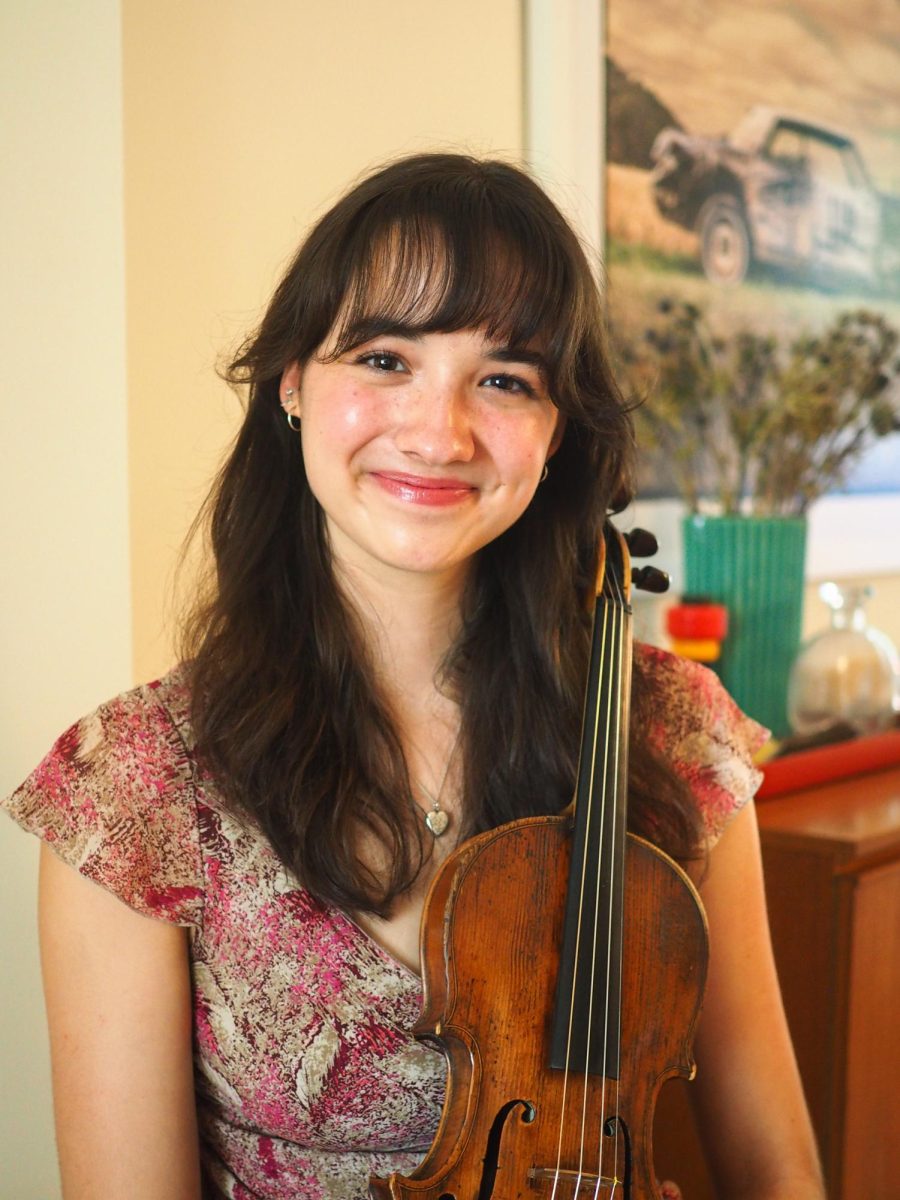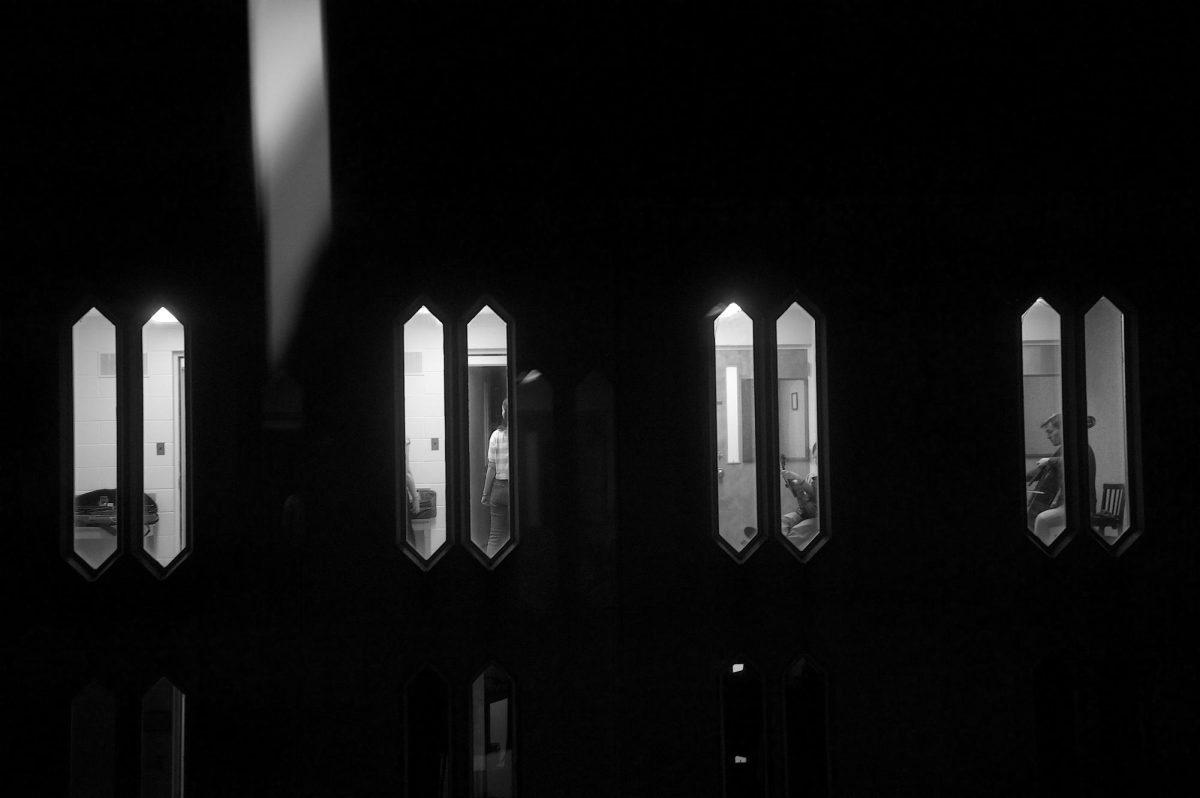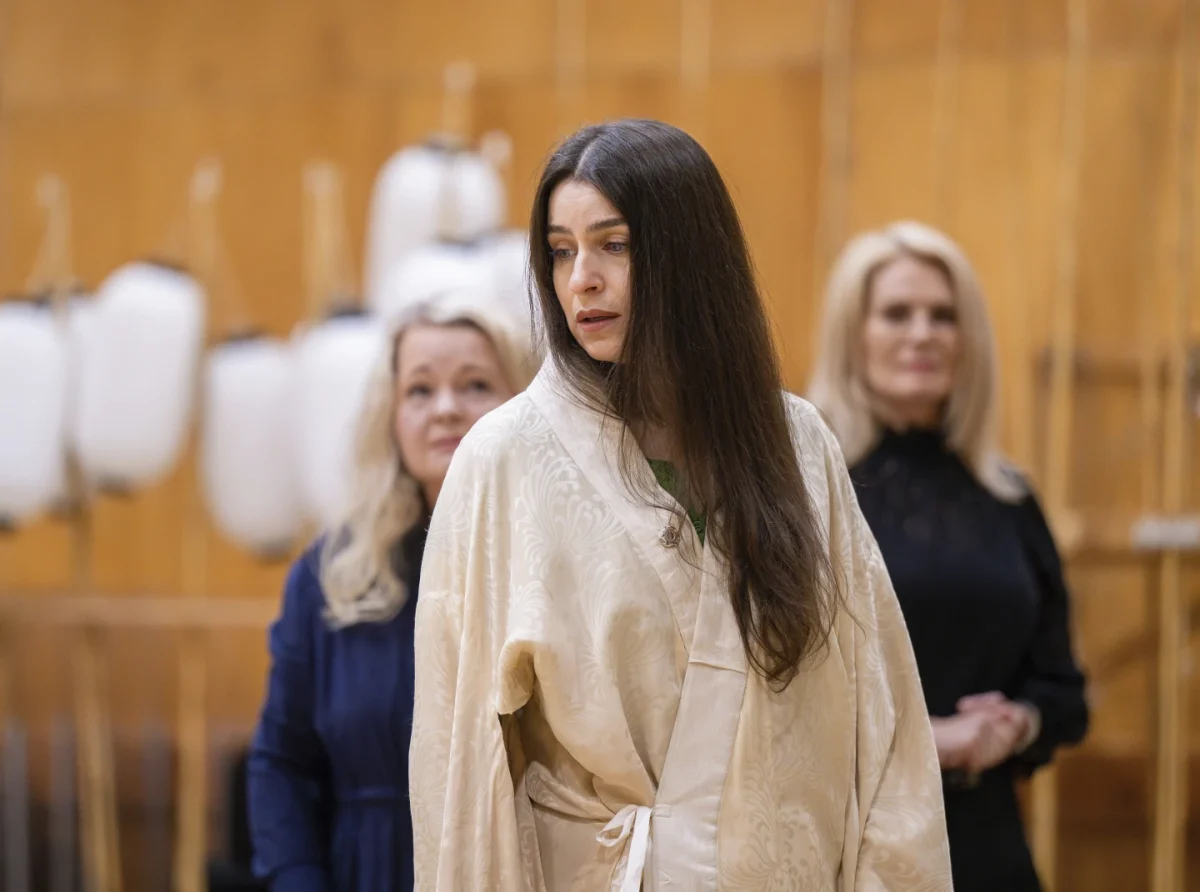Renowned for his intricate counterpoint, ingenious harmonies, and unparalleled emotive abilities, Johannes Sebastian Bach’s compositions transcend time, weaving a tapestry of emotional depth that continues to captivate and inspire musicians and listeners alike.
This year, a new competition for string instruments will center his music and celebrate the en during legacy of his genius. The aptly named Bach Competition at Oberlin Conservatory aims to showcase the talent of Oberlin Strings students.
The competition is the brain-child of Matilda Goldie, a second-year Violin major who noticed that Bach’s compositions for unaccompanied strings are seldom performed in their entirety.
“It was really an idea that came to me over the course of last year,” Goldie said. “I noticed myself as a string player practicing a lot of Bach, but never having the chance to perform it outside of studio classes. Even in studio classes, it would only be a movement, but Bach wrote these solos, sonatas, patitas, and suites to be played in their entirety, which you very rarely hear.”
Impassioned, Goldie set out to make this idea a reality. She spent last semester scouting faculty members who would be interested in getting involved, and eventually landed on Professor of Violin and Director of the Strings Division Sibbi Bernhardsson, OC ’95.
“When Matilda started talking about starting a Bach competition, everybody in the String[s] department was very much in favor because we are always looking for opportunities [for students] to perform,” Bernhardsson said.
A main emphasis of the competition, Goldie said, is that “anyone can win, no matter what instrument they are playing on — period or contemporary interpretations. I wanted the judging panel to be very diverse in that way.”
The board of judges covers the range of string instruments, consisting of Marilyn McDonald, former professor of Violin; Edwin Huizinga, OC ’06, visiting assistant professor of Baroque Violin; Peter Slowik, professor of Viola; and Dmitry Kouzav, associate professor of Cello.
Goldie worked with faculty to make the competition as inclusive and accessible as possible, opening it to any year and string type. This makes it the only current strings competition at Oberlin that is open to any year — other contests, such as the Concerto Competition, are only for fourth-year students. Bernhardsson further emphasized the importance of performance opportunities for students.
“There is such an important educational component in doing competitions — preparing is a different type of preparation, and it seemed like a fun project because the final round is really going to be a performance,” Bernhardsson said.
The response from students has been equally positive.
“In all my years of playing viola, I have never participated in any sort of competition before,” double-degree third-year Lily Bronson wrote in an email to the Review. “I’m very excited that Matilda created the opportunity for any string player who’s interested to have a chance in a competition, without any travel or fees. It made this experience accessible to me for the first time!”
What drives the competition, for judges and competitors alike, is a deep love and appreciation for Bach. Bernhardsson appreciates Bach’s music for its timelessness and versatility.
“His music is just as interesting and fresh to us today as it was 200 years ago,” Bernhardsson said. “It’s so abstractly beautiful; it’s almost like what instrument he’s writing for is almost less important than the music itself. My favorite thing about Bach is that there can be a piece of music that would be perfectly appropriate at a funeral, but would also be perfectly appropriate at a wedding.”
Bronson, a contestant, says that she loves to play Bach not only because his works are “a technical masterpiece,” but because it makes her feel connected to history.
“You know that other musicians have been playing these works for hundreds of years, adapting them to their own instruments and the constantly changing demands of musical expectations,” Bronson said. “I like playing solo Bach because the entire work is captured by myself, solo. I find that individually practicing Bach is more rewarding, because the end result will be dictated only by what I choose to do. It’s a lot of responsibility and a lot of freedom, and I enjoy exploring my own limitations in this space.”
For Goldie, the relation to Bach feels a lot closer to home.
“I’m from Newfoundland in Canada, so I grew up fiddling,” she said. “With fiddling, there’s a lot of improvisation and ornamentation, and I have always loved incorporating that into my classical playing, but there aren’t really a lot of outlets where that’s very encouraged. [In Bach’s music] whenever there are repeats, I’ve had teachers who really encourage you to make it your own. So I’ve always felt a sort of kinship to Bach.”
With anticipation building, the Bach Competition at Oberlin emerges in its inaugural year as a testament to the enduring relevance of Bach’s music in the 21st century, and Goldie hopes it will become a new Oberlin tradition.
The first of two rounds will take place Feb. 28, and registration is open until Feb. 14. There will be three evenly-ranked winners selected who will each receive $200 and get to perform their selection in a concert at Fairchild Chapel in April. Sign-up forms can be found pinned to the Strings Division board on the third floor of Bibbins Hall.









